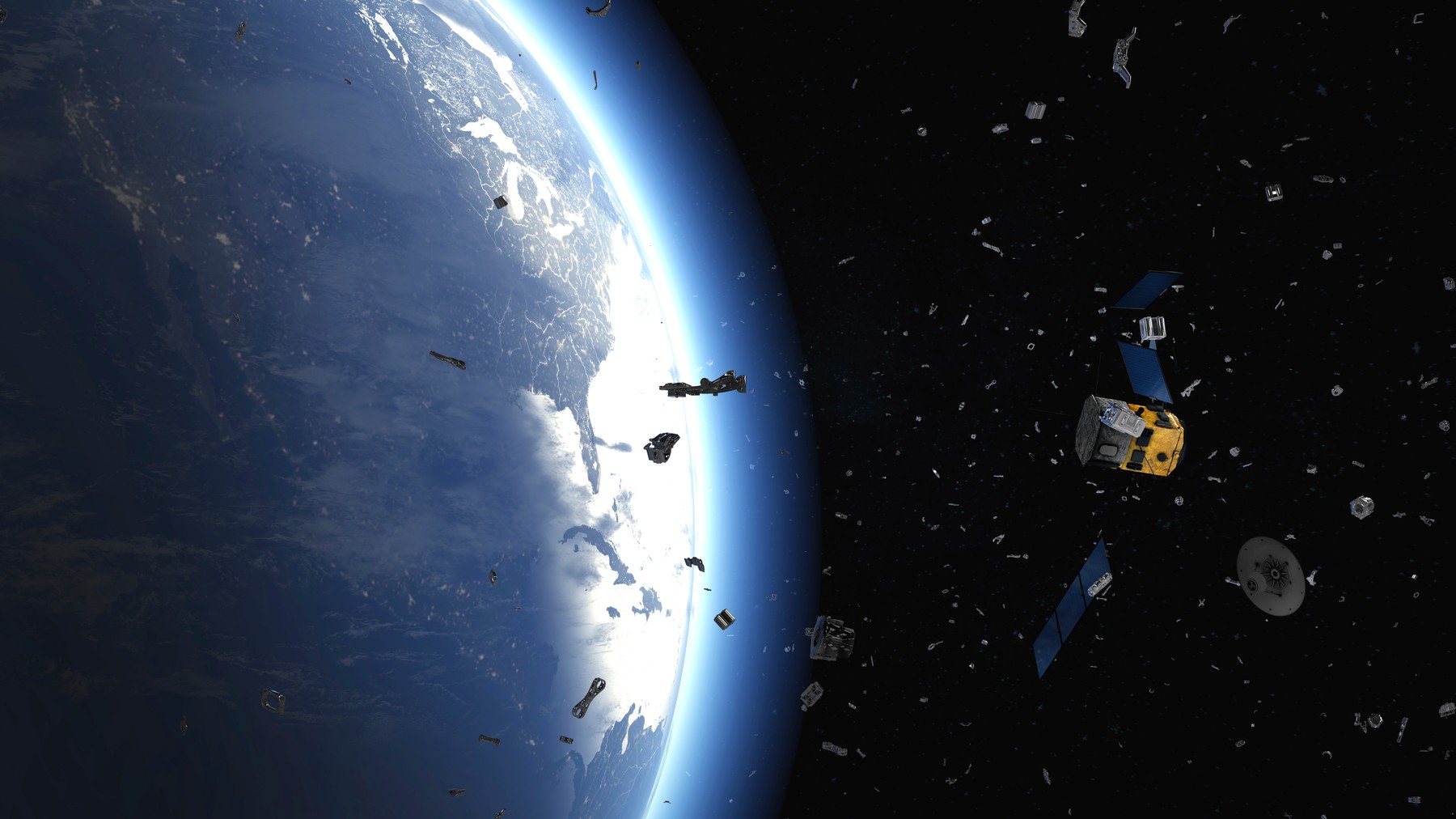What is Kessler syndrome and why we may not be able to go into space ● Global ecosystems risk collapse by 2030 ● Space travel strongly affects the immune system

space debrisPhoto: CHRISTOPH BURGSTEDT / Sciencephoto / Profimedia
What is Kessler syndrome and why we may never be able to walk in space
Kessler syndrome was first talked about in 1978. It was done by a NASA researcher, Donald Kessler in his name. And the scenario he talked about then referred to space debris. More precisely, their density will become so high over time that they will end up generating collisions in a cascade, hence resulting in even more space junk, that Earth’s orbit will no longer be reachable. At least not without jeopardizing the safety of the astronauts.
And Kessler’s scenario is very close to becoming a reality, as there are currently over 100 trillion pieces of debris orbiting the Earth, and their number is constantly increasing, endangering even the safety of satellites that are still in operation. That is 7,702 active satellites (updated date May 4, 2023).
Not to mention that Starlink, SpaceX’s satellite network, aims to launch and coordinate 42,000 satellites. Starlink currently has around 4,000 satellites in low Earth orbit.
The problem is that nothing is being done, or can be done, to clear the place. Even if objects naturally end up in the atmosphere, that takes time. Very long time. China tried to get rid of a satellite with a missile specially designed to destroy defunct satellites, but it jumped from the lake into the well and produced even more waste. The problem was that, beyond the eco-rhetoric, their intention would have been more to show that they could target a satellite of their choice, not to make the orbit cleaner.
Returning to the extremely difficult task of cleaning up the orbit, a private British company says it has created a system to be able to at least get rid of decommissioned satellites. Astroscale is the company’s name, and its proposal comes in the form of two satellites (a 175-kilogram main one, and a 17-kilogram “client” one). The main satellite was tasked with capturing the small satellite with a docking-like system, then guiding it into the Earth’s atmosphere, where it would burn up. That was phase 1 of the mission, called ELSA – D (from demonstration), and it was already deployed.
The II stage, called ELSA – M (from multi-client) provides for the launch of a whole network of these “sanitary” satellites, which will clean the orbit of space debris and non-functional satellites. Sounds good. The problem is, however, that these satellites can safely approach the target, and capture it, only if the target is equipped with the pneumatic and magnetic system to allow such an operation. We’re still not at the level of Star Trek, let’s have a tractor wave.
So, for now, they will only be able to be used in a limited number of cleaning operations. Operations that only consider whole satellites, not the debris resulting from their disintegration. Then there would be a legal problem. Who can afford, for example, to touch decommissioned Soviet satellites, or those of companies that have already gone bankrupt?
Global ecosystems risk collapse by 2030
What was predicted to happen at the end of the century, that is, the disappearance of many of the current planetary ecosystems, risks happening much faster than anyone could have imagined. At least that’s what a team of researchers from Bangor University and Southampton University in the UK claims in a recent study published in the journal Nature.
The fact that humanity puts enormous pressure on ecosystems is no secret or revelation. Scientists call this “stress”. A stress that affects ecosystems in all corners of the world. Thus, tropical forests tend to turn into savannas or are converted into agricultural land, the latter desertifies, coral reefs disappear and the tundra thaws, releasing huge amounts of methane.
Currently, more than 20% of the mentioned ecosystems are in such danger, but specialist estimates show that the percentage could suddenly increase to at least 80%. And as the pressure builds, things will only get worse.
To find out how long we have until ecosystems reach a point of no return, the experts used ecological models provided by areas that have already collapsed, and applied the data to a computer model. When the stressors were compared to other areas of the globe, in more than 700,000 simulations, they all showed that the risks were much higher than previously reported.
Thus, what was supposed to happen at the end of the 21st century risks happening in less than a decade. And the worst part is, once you get to that point, there’s nothing you can do.
Space travel strongly affects the immune system
We are not made to travel in space, as much as we would like to. And until we invent technologies that mimic conditions on Earth, it’s clear that we’re going to have serious problems with long-duration space expeditions.
New evidence in this has appeared in the form of a study published by a group of Canadian specialists in the journal Frontiers in Immunology. Specifically, evidence showing that astronauts are susceptible to developing infections during missions is mounting.
The researchers took blood samples from 14 astronauts (3 women and 11 men) who participated in missions lasting between 4.5 and 6.5 months between 2015 and 2019. And the results of the analyzes showed that there are changes in the behavior of leukocytes. And that translates into a rapid weakening of a person’s immune system once they reach space.
The good thing is that the white blood cells return to normal functions once the person returns to Earth. The bad part is that we don’t have a solution for such changes and risks. And this will definitely have a strong effect on the upcoming long-term projects, which envisage a permanent base on the Moon, or manned trips to Mars.
Anyway, we hope you weren’t planning to fly into space anytime soon and we didn’t spoil your plans.
Follow our Facebook page, HotNews Science, to be able to receive directly, in real time, the latest information and curiosities from the world of science!
Photo source: profimediaimages.ro



